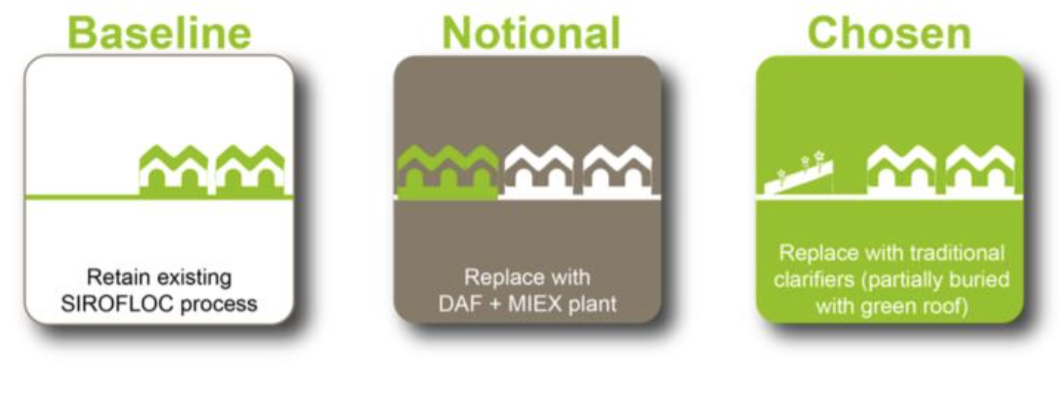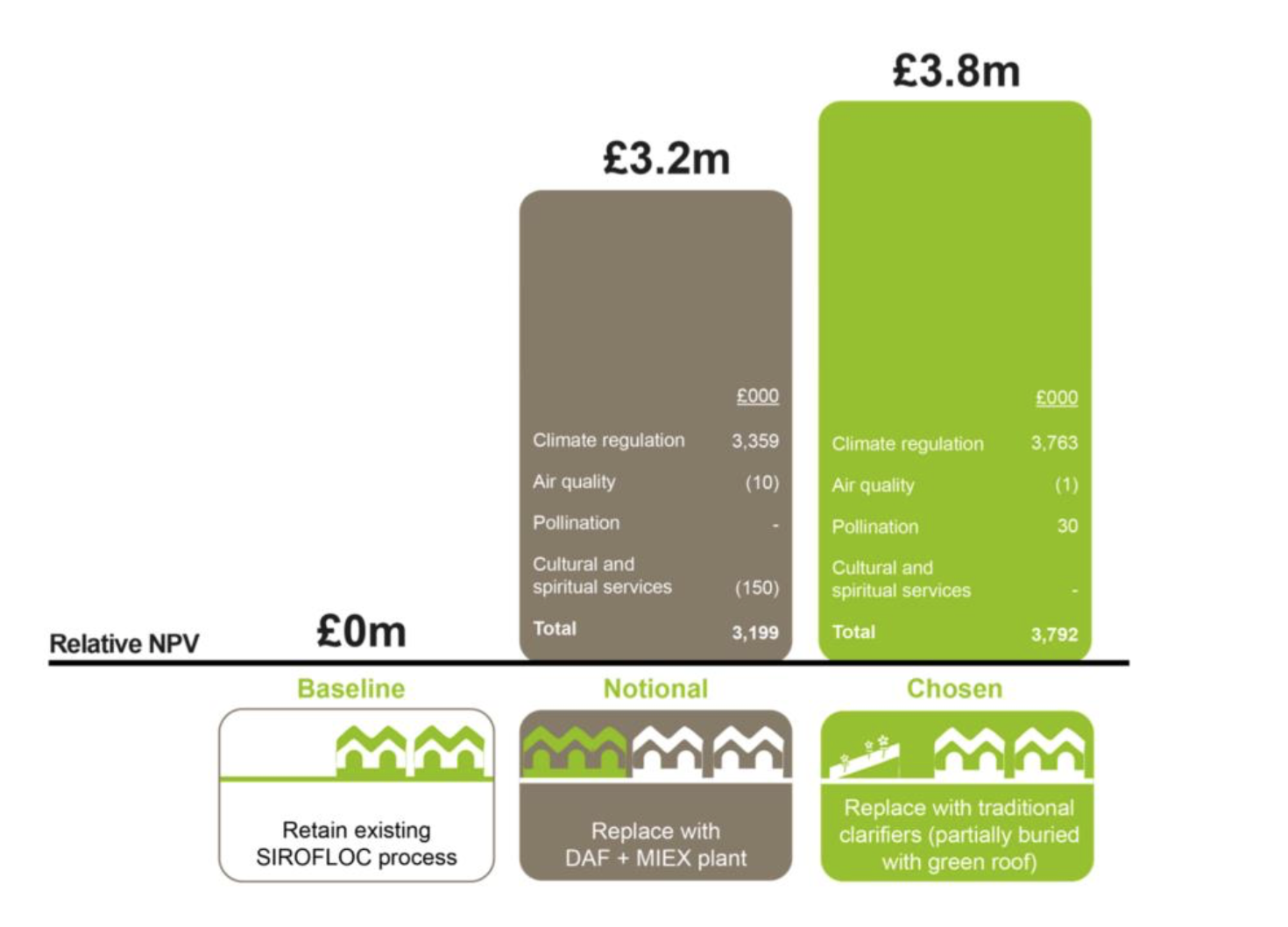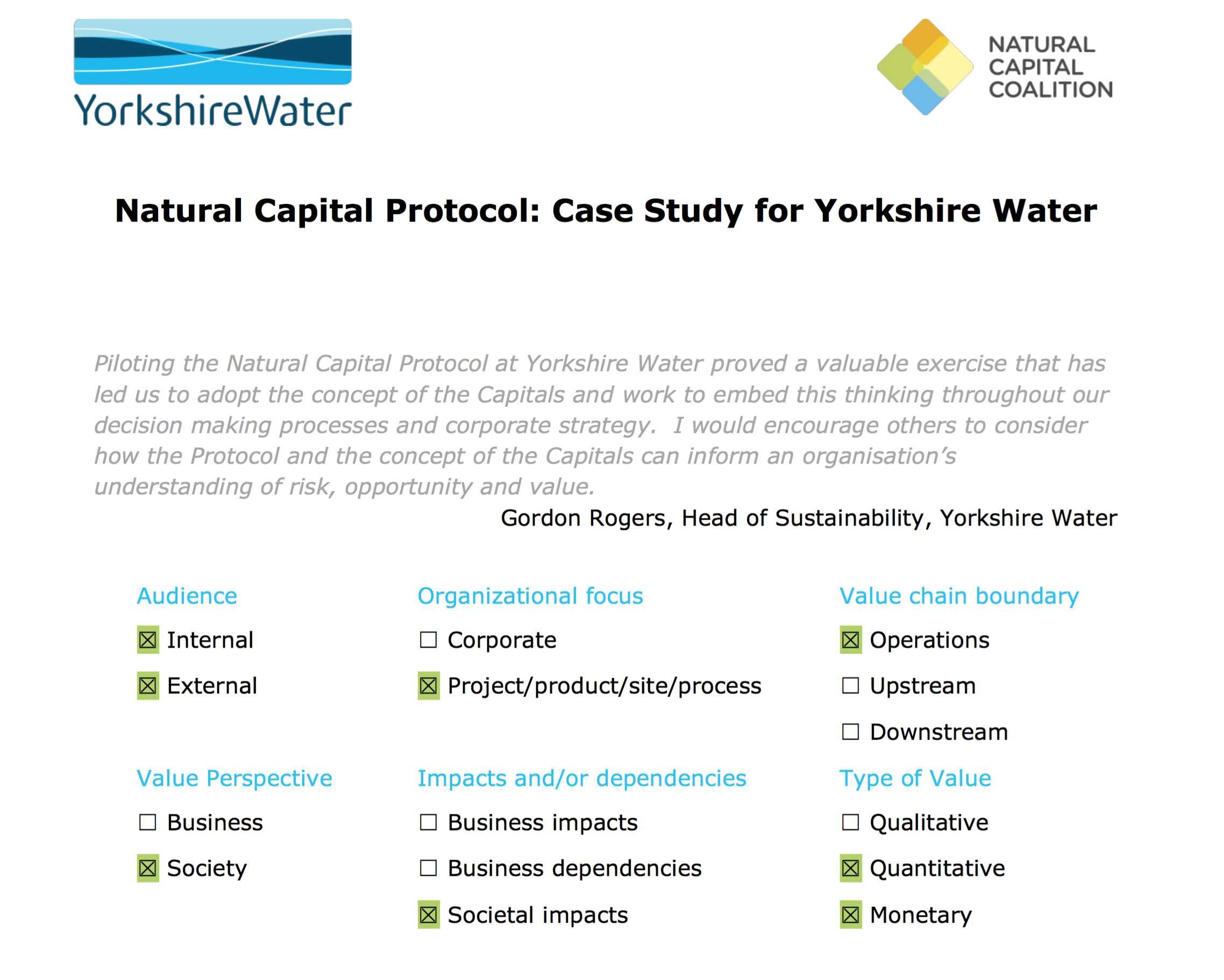The company in brief:
Yorkshire Water is a water and waste water services utility company servicing 5m domestic customers and 136,000 business premises in West Yorkshire, South Yorkshire, the East Riding of Yorkshire, part of North Lincolnshire, most of North Yorkshire and part of Derbyshire, in England.
Why a natural capital assessment?
Yorkshire Water, assisted by AECOM, applied the Natural Capital Protocol to a trial site at Rivelin Water Treatment Works, one of the primary water treatment plants supplying the City of Sheffield and undergoing a £24m capital upgrade.
Yorkshire Water wanted to include the Protocol as part of their optioneering process, to better understand environmental impacts and trade-offs, better inform investments and operations, and enhance value with the upgrade.
The Protocol was applied to a number of high level upgrade options, with two main solutions (‘notional’ and ‘chosen’ solutions) being assessed and compared to baseline infrastructure to retrospectively evaluate natural capital impacts.

How was the Natural Capital Protocol used?
Yorkshire Water followed all of the Scoping, Measure and Value and Apply stages of the Protocol in performing the assessment.
The company used AECOM’s Ecosystem Services Identification, Valuation and Integration (ESIVI) tool to identify material impacts. This analysis incorporated criteria including beneficiaries affected by ecosystem services, importance of each service to local communities, and the degree of management control of the delivery of these services on site. Key impacts were identified for global climate, air quality, pollination and cultural/spiritual values in the area.
Methodologies for estimating monetary values of each material service were selected on the basis of relationships determined from the peer-reviewed academic literature and government guidance. The robustness of each selected valuation methodology was then assessed and categorised, to maintain transparency through the valuation process. Relative NPV was calculated for each option to select the one with the least negative impacts, as shown below.

What were the outcomes of the assessment?
The assessment confirmed that the chosen solution provided less negative and more positive environmental impacts. This was achieved, for example, by reducing impacts on global climate regulation through the use of a gravity-fed supply system that reduced energy requirements, by maintaining cultural and spiritual values by partially burying the building and by enhancing pollination services by creating a wildflower meadow on the building’s roof. The latter two approaches also assisted in obtaining planning permission for the project.
By monetising the material environmental impacts, the assessment enabled direct comparison with more obvious costs and benefits, and therefore, richer internal debate around the environmental impacts than may occur traditionally. Although the assessment was carried out retrospectively, application early on in the design and “optioneering” phases of a capital scheme provided new insight to enhance decision making and risk management.
The assessment showed that whilst “optioneering” using the Protocol delivered a less environmentally damaging solution, an adverse impact on carbon emissions (the highest impact) was unavoidable in meeting the social imperative for safe and reliable drinking water.
Yorkshire Water found that undertaking the assessment was beneficial in providing ‘hard numbers’ to inform decisions, thereby facilitating the effective inclusion of environmental issues (risks and opportunities), and supporting dialogue on natural capital issues with stakeholders.
A workshop with representatives from business units across Yorkshire Water sought to build on the outcomes of the Protocol assessment to discuss how a natural capital approach could be implemented more broadly across the business.
Next steps
Yorkshire Water recognise that conducting future assessments that address all impacts and dependencies, including all relevant environmental, financial and social attributes of a project will provide even more power to the company’s decision-making process.








